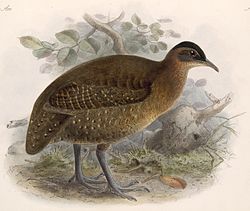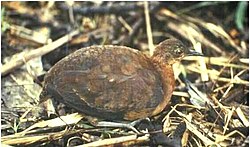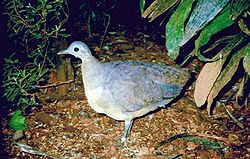| The population of birds |
|---|
 |
This is a list of Tinamiformes species by global population. While numbers are estimates, they have been made by the experts in their fields. For more information on how these estimates were ascertained, see Wikipedia's articles on population biology and population ecology.
Contents
This list is not comprehensive, as not all Tinamiformes have had their numbers quantified.















